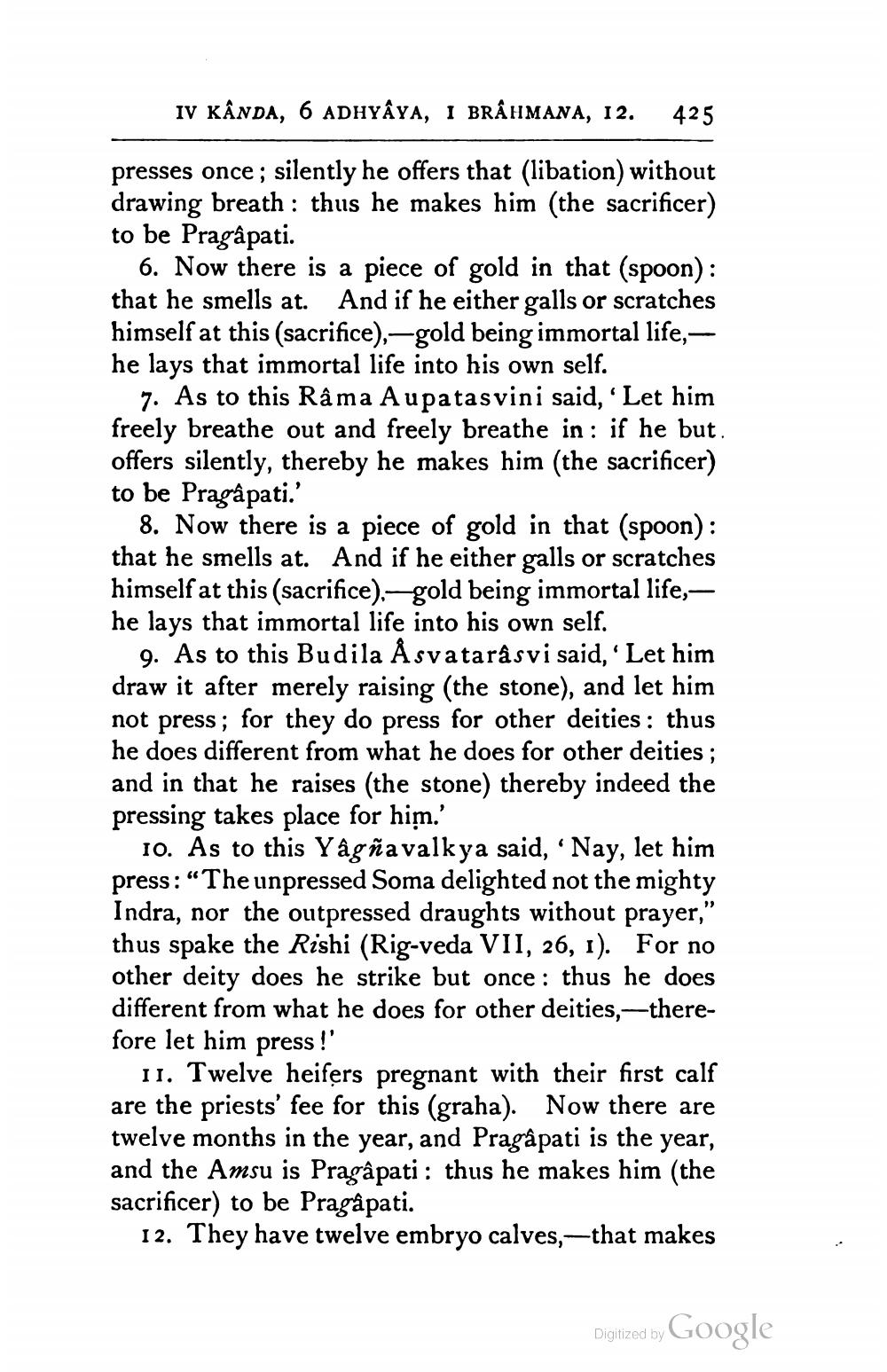________________
IV KÂNDA, 6 ADHYÂYA, I BRÂHMANA, 12.
425
presses once; silently he offers that (libation) without drawing breath : thus he makes him (the sacrificer) to be Pragâpati.
6. Now there is a piece of gold in that (spoon): that he smells at. And if he either galls or scratches himself at this (sacrifice),-gold being immortal life,he lays that immortal life into his own self.
7. As to this Râma Aupatasvini said, 'Let him freely breathe out and freely breathe in : if he but. offers silently, thereby he makes him (the sacrificer) to be Pragâpati.'
8. Now there is a piece of gold in that (spoon): that he smells at. And if he either galls or scratches himself at this (sacrifice), gold being immortal life,– he lays that immortal life into his own self.
9. As to this Budila Åsvatarâsvi said, 'Let him draw it after merely raising (the stone), and let him not press; for they do press for other deities : thus he does different from what he does for other deities ; and in that he raises (the stone) thereby indeed the pressing takes place for him.'
10. As to this Yâgñavalkya said, 'Nay, let him press: "The unpressed Soma delighted not the mighty Indra, nor the outpressed draughts without prayer,” thus spake the Rishi (Rig-veda VII, 26, 1). For no other deity does he strike but once : thus he does different from what he does for other deities,-therefore let him press!'
11. Twelve heifers pregnant with their first calf are the priests' fee for this (graha). Now there are twelve months in the year, and Pragâpati is the year, and the Amsu is Pragâpati : thus he makes him (the sacrificer) to be Pragàpati.
12. They have twelve embryo calves,—that makes
Digitized by Google




